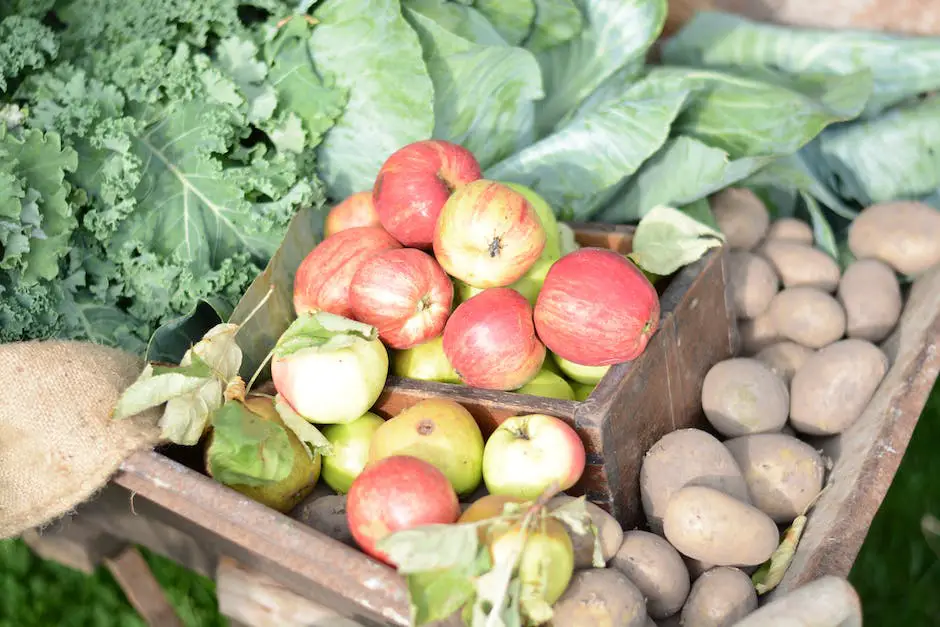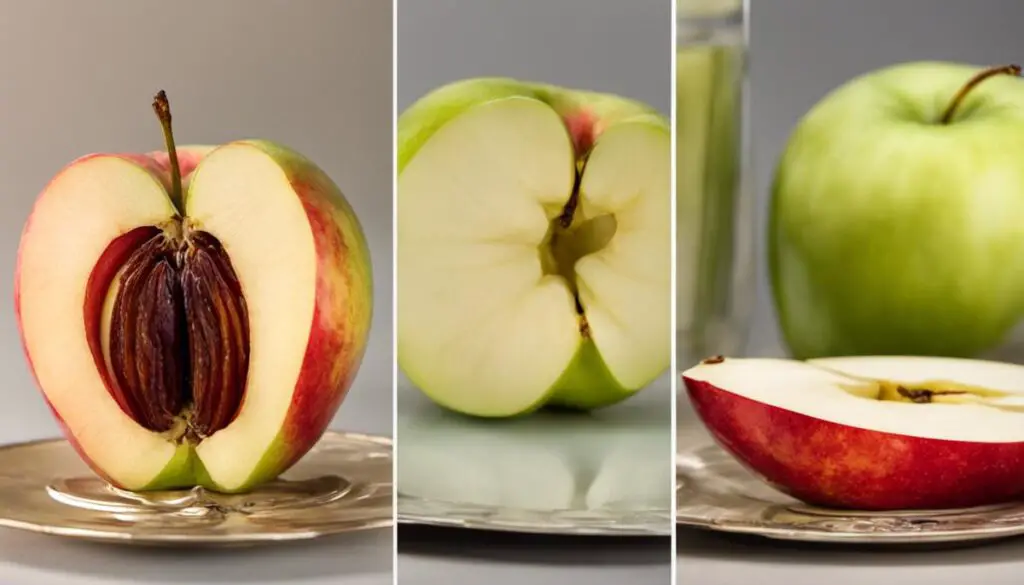Apples, known as nature’s candy, are a staple in most households for their taste, health benefits, and versatility in culinary uses. However, it can be a disappointment to bite into an apple only to find it has turned soft and mushy. The firmness of an apple is largely connected to its freshness and taste. Behind this firmness are complex biological processes and factors like ripening stages, enzymes, and storage conditions that dictate the transformation from a crisp, juicy apple to a soft, mealy one. Furthermore, external factors, such as temperature, humidity, and variety, also play significant roles in the firmness of the apple. Gaining a thorough understanding of these factors allows us to develop methods to prolong the freshness of apples and prevent them from becoming mushy too soon.
The Biology Behind Soft Apples
The Process of Apple Ripening
The journey of an apple from a firm, tart fruit to a soft and mushy one begins on the tree. During the growth stage, the fruit’s cells are multiplying and expanding, filling with water, acids, and sugars. After the fruit is harvested, it enters the ripening stage, a process that is heavily influenced by a plant hormone called ethylene.
Apples are climacteric fruits, which means they continue to ripen after being harvested due to the production of ethylene. This hormone triggers the process of softening and sweetening the apple, as well as changing its color. Ethylene accomplishes this by promoting the production of specific enzymes like pectinase and amylase.
Enzymes and Apple Softness
The enzyme pectinase breaks down pectin, a substance in the apple’s cell walls that keep it firm. As the pectin breaks down – a process referred to as depolymerization – the apple’s flesh begins to soften. Amylase, on the other hand, breaks down the apple’s starch reserves into sugars, contributing to the sweet flavor of a ripe apple. As the apple continues to produce ethylene and these enzymes continue to work, the fruit progressively softens and sweetens.
Another enzyme at play is polyphenol oxidase, which causes the browning that sometimes accompanies a mushy apple. This enzyme reacts with oxygen (if the apple is cut or bruised) and certain compounds in the apple, producing a brown pigment.
Storage Conditions and Apple Ripening
The speed of the ripening process can be influenced significantly by storage conditions. Temperature and humidity play critical roles. Apples ripen faster at room temperature than in the fridge. That’s because cool temperatures slow down the production of ethylene and the action of the ripening enzymes. By contrast, warmer conditions will speed up these processes.
Apples also release ethylene gas, which can soften not only the apples themselves, but also any other produce stored nearby. That’s why it’s often said that ‘one bad apple spoils the bunch’. To slow down ripening and maintain firmness for longer, apples should be stored in a cold, humid environment, ideally separate from other fruits and vegetables.
Understanding the Causes of Mushy Apples
When an apple becomes mushy, it’s just a sign of its natural ripening process. The apple’s texture changes due to the breakdown of its cell structures. This could be a result of an extended ripening period or being kept in an environment that naturally expedites the ripening process. As a result of this accelerated enzymatic activity, the pectin and other cell wall components break down, which softens the apple’s flesh over time.
This change of texture, although not preferred by many, doesn’t mean that the apple is no longer safe to eat. Even a mushy apple is still edible and manages to retain the majority of its nutritional benefits. In other words, its softened texture is just a product of its advanced stage in the ripening process, influenced by enzymatic activity and exposure to ethylene gas.

Factors affecting Apple Firmness
The Influence of Temperature on Apple Firmness
Temperature plays a crucial role in determining the ripening rate and firmness of apples. For maintaining firmness, apples should ideally be stored in cool conditions, preferably at around 32°F (0°C). As the storage temperature rises, the rate of the apple’s respiration process also increases. This process involves the consumption of the apple’s stored sugars, contributing to a quicker softening of the fruit’s flesh. On the other hand, if apples are stored in cooler conditions, the respiration process slows down, helping retain the firmness of the apples for a longer period of time.
Humidity and its Effects on Apple Firmness
Humidity plays a substantial role in maintaining apple firmness as well. Relative humidity in the storage environment should ideally be around 90-95%. Too high humidity can support the growth of mold and other pathogens, whereas too low humidity can cause moisture loss from the apples. This dehydration results in shrinkage and consequently a soft, wrinkled appearance. Therefore, balancing the humidity is crucial in maintaining the ideal firmness of stored apples.
The Impact of Apple Variety on Firmness
Different apple varieties have inherent differences in their firmness levels and longevity. For instance, certain varieties like Honeycrisp and Fuji are known for their natural firm texture, making them popular choices among consumers who prefer crispy apples. Conversely, varieties like Golden Delicious and Macintosh have a naturally softer texture. The variety’s inherent firmness level, along with how it was bred and grown, contributes to how quickly it becomes mushy.
Role of Storage in Maintaining Apple Firmness
Storage conditions can greatly determine the firmness and freshness of apples. The ideal storage environment involves a balance of the right temperature, humidity, and air circulation. Apples also produce ethylene gas as they mature, causing them and other fruits around them to ripen faster. Thus, they should be stored separately from other fruits to delay over-ripening and softening.
Physiological Disorders and Apple Softness
Certain physiological disorders related directly to improper harvesting and handling can also contribute to apple softness. For instance, apples harvested too early in the season might lack firmness and become mushy more swiftly. Stressors such as rough handling during, and after harvesting, can cause bruising and damage to the apple, which accelerates the breakdown of cell structure and results in softer texture.
Unraveling the Mysteries of Mushy Apples
Apple firmness is paramount in ensuring its freshness and palatability. Multiple factors such as the variety of the apple, external temperature and humidity, storage conditions, and handling methods interplay to determine how long an apple maintains its desired firmness. Through understanding this complex relationship of factors, consumers can ensure the desired level of firmness, which in turn enhances the overall quality of apples.

Preventing Soft Apples
The Process of Apple Softening: An Insider’s View
The primary offender in the inexplicably mushy apple predicament is often improper storage. Apples, post-harvest, continue to ripen and soften, courtesy of a hormone known as ethylene. This ripening process accelerates in warmer environments, causing apples to lose their firmness more quickly than they would in colder settings.
The humidity level of storage also holds sway in the apple’s journey to mushiness. The combination of apples and additional moisture encourages an accelerated decay process. For example, apples stored in plastic bags can perish quickly due to trapped humidity. Similarly, if apples share storage space with certain fruits such as bananas which produce ethylene, it can hasten the apple’s ripening and softening process.
Physical damage to an apple also expedites its transition to mushiness. Any bruising or mishandling of the apple can compromise its cellular structure, accelerating ripening and decay. In addition, improper washing of apples could leave microscopic mold spores on their surface which might contribute further to the rapid softening of the fruit.
Preventing Soft Apples: How to Store and Handle Them Properly
Proper storage is the key to preventing apples from becoming mushy. Apples should be stored in a cool, dry place, ideally in the refrigerator, where the cooler temperature will slow down the ripening process. Storing them in the crisper drawer of the refrigerator can help maintain the appropriate humidity level to prevent too much moisture from causing the apples to decay prematurely.
When storing apples, avoid storing them with other ethylene-producing fruits like bananas or avocados as this can hasten the ripening process. To further extend the life of your apples, store them in a breathable bag, such as a paper bag or a perforated plastic bag. This allows the ethylene gas to escape, yet maintains enough humidity to keep the apples fresh.
In terms of handling, it’s important to handle apples with care to prevent bruising. When washing, use cold water and dry them thoroughly before storing to remove any potential mold spores.
Selecting Apples for Extended Shelf-Life
When buying apples, opt for those that are firm to the touch as they have a better chance of retaining their firmness. Apples that already feel soft or have bruises are not great for long term storage as they are already showing signs of decay or ripening.
Selecting apple varieties that have a longer storage life can also aid in avoiding mushiness. Some apple varieties such as Granny Smith, Rome, and Fuji are known for their ability to hold up well over time.
By adhering to these storage and handling practices, you can significantly enhance the longevity and maintain the crunch of your apples, preventing them from turning mushy prematurely.

The experience of enjoying a perfect apple is an art that can be mastered by grasping the science behind apple firmness and understanding the influenceable factors that come into play. Through learning about apple biology and identifying ideal storage conditions, we are better equipped to minimize the rapid softening of our beloved apples. Moreover, practical advice on handling practices provides another step to maintain the crispness and extend the shelf-life of apples. Such knowledge empowers us to control our food experiences better, leading to more satisfying crunches in every apple we consume. An apple a day keeps the doctor away, but a firm, fresh apple also keeps disappointment at bay.
